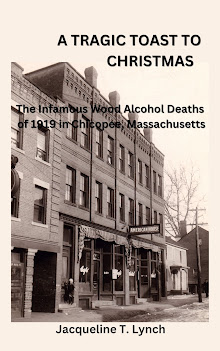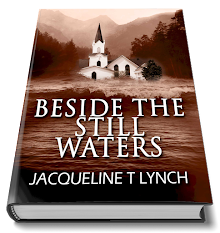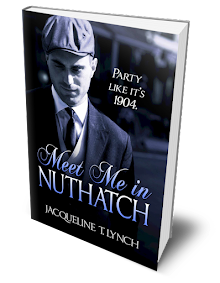Tuesday, May 31, 2011
War Memorials - Concord, Massachusetts
The memorial dates from the Civil War, which gave us Memorial Day, so we start there. Some towns have a few names for the Spanish-American War.
Then the World War took more men from town, and added some names to the town monument.
Then World War II did the same, for some towns, a lot of names. A small addendum for the Korean War, another for Vietnam. Here we have one name for the conflict in the Dominican Republic. Not too many people remember our invasion there in 1965, where some 44 Americans were killed.
Some towns have separate monuments for the fallen of separate wars, and some have the names of all the fallen clustered in a small granite and bronze universe, with only a new wreath every summer to mark the time denied them. That their names are permanently fixed here is perhaps more a comfort to us than to them.
More recent wars, and newer plaques, because the need to honor them never diminishes, just as the pain of their loss never fades.
Posted by
Jacqueline T. Lynch
at
7:38 AM
0
comments
![]()
Labels: 19th century, 20th Century, Civil War, holidays, Massachusetts, monuments, World War 1, World War II
Tuesday, May 17, 2011
Myths of the Modern Man
This is to announce my latest novel published as an ebook through Amazon.com, Barnes & Noble.com, and Smashwords: MYTHS OF THE MODERN MAN.
A late 21st century time traveler battles bards, druids, warrior queens, and Roman cohorts for survival during the Celtic rebellion against the Romans in Britannia, 60 AD. Fun for all.
Time traveler John Moore’s fate is determined by four women: the Celtic warrior queen Boudicca; Tailtu, a gentle slave purchased from another clan; Dr. Eleanor Roberts, a severe, jealous and brilliant woman who spearheads the time travel mission; and enigmatic Dr. Cheyenne L’esperance, herself a time traveler from an even more distant future. Moore’s mission to survive three battles against the Roman legions coincides with survival tactics and backstabbing in the modern government department. The savage past clashes swords with the desperate future in a time continuum of treachery. All this, and a smattering of Latin for $2.99! What a deal!
For those without a Nook or a Kindle or other e-reading device, the Kindle software can be downloaded to your computer for FREE (see link in the sidebar), or you can download the novel from Smashwords in a variety of formats that you can read right off your computer.
Please visit my Another Old Movie Blog this coming Thursday for the coupon code to download your copy of MYTHS OF THE MODERN MAN, free for a limited time.
Posted by
Jacqueline T. Lynch
at
6:36 AM
0
comments
![]()
Tuesday, May 10, 2011
Essex Steam Train - Essex, Connecticut
Our tribute to National Train Day is a bit delayed, but you can be sure the trains at the Essex Steam Train in Essex, Connecticut run on time. Take on ride on this historic excursion train from Essex Station to Deep River Station (where you can then take the Becky Thatcher riverboat up to Haddam and back.)
The train trip is 12 miles round trip, and is fun, educational, and glorious way to watch the seasons change in New England, chugging through some of the prettiest countryside along the Connecticut River.
This is a view that’s been enjoyed by generations of New Englanders, as far back as the first run in July of 1871. This little branch line of track has seen it all.
It had been a link in those days between the state capitol of Hartford, and the shore village of Old Saybrook. In the 1880s the Hartford & Connecticut Valley Railroad joined as a branch of the New Haven railroad.
In the 1950s when the automobile had a lot of new highways to explore, the number of passengers on the old railroad dwindled, trains ran less often. By the early 1960s, only a couple freight trains per week used the struggling railroad line. The last train ran in 1968.
Then, as it so often happens, a group of heroes, otherwise known as volunteers, worked to keep the new owners, Penn Central, from tearing up the rails of the abandoned railroad. The Penn Central leased the branch to the State of Connecticut in 1969, and the following year, the Valley Railroad Company was authorized to use over 22 miles of track for freight and passenger service. The Essex to Deep River steam train run was born.
Come ride this beautiful train excursion yourself and see what life was like on before the interstate, when small towns and villages were linked by a local railroad. For more information on the Essex Steam Train and the Valley Railroad Company, have a look at this website.
Posted by
Jacqueline T. Lynch
at
7:26 AM
2
comments
![]()
Labels: 19th century, 20th Century, Connecticut, tourism, transportation
Tuesday, May 3, 2011
A Moment of Gratitude
This giant American flag hangs in the impressive and beautiful Union Station in Cincinnati, Ohio. My post intended to celebrate this coming Saturday's National Train Day (May 7th) will be postponed until next week, when we have a look at the Essex Steam Train excursions in Connecticut.
For now, to mark the death of the terrorist Osama Bin Laden at the hands of U.S. special forces by order of President Obama, we pause under a great flag for a quiet moment of gratitude that there is one less monster in the world.
Posted by
Jacqueline T. Lynch
at
7:26 AM
0
comments
![]()
Tuesday, April 26, 2011
Paul Revere's Ride
Before we say goodbye to April, we might recall that solid, rhythmic dirge, “On the eighteenth of April, in Seventy-Five/Hardly a man is now alive/Who remembers that famous day and year.”
Many of us remember that famous day and year only because of Henry Wadsworth Longfellow’s poem “Paul Revere’s Ride”. We coming into several months (and years, probably), of Civil War commemorations on the 150th anniversary of that war, but one thing we might also remember is that the turmoil between the North and South, even before the war actually started, coincided with a renewed interest in the American Revolution. Longfellow’s poem, published in 1860, was part of this nostalgia for a time when American ideals seemed more cohesive and the country moved as one with a greater sense of purpose.
Paul Revere, though a man of some repute in Boston for being a craftsman, businessman, solid citizen, and like many of his generation, a Revolutionary War vet, really didn’t come into the national pantheon of American heroes until Longfellow made him a hero in his poem.
His deed was to be sent by Dr. Joseph Warren, on the night of April 18, 1775, to Lexington to warn Samuel Adams and John Hancock that they were about to be arrested by British soldiers. Revere was rowed across the Charles River from Boston to Charleston by two other revolutionaries, borrowed a horse, saw that the signal of two lanterns hanging in the church bell tower meant the British were going to cross into Cambridge over the water route rather than on the march out Boston Neck, and delivered the warning.
Then a couple of other riders joined in spreading the alarm, William Dawes, and Dr. Samuel Prescott. The trio decided to continue on to Concord. All three of them were arrested by British soldiers, and Prescott and Dawes managed to escape, but Paul Revere was held for a time, then released, though they confiscated his borrowed horse.
We don’t hear too much about Dawes or Dr. Prescott, not having poems written about them, but Dawes’ part in the adventure is recounted here on his grave marker at the King’s Chapel Burial Ground in Boston.
Paul Revere’s grave marker, at the Old Granary Burial Ground is without any such description, but you don’t need a commemorative marker when Longfellow writes a poem about you.
Oh, and he’s also got this equestrian statue, and that’s the Old North Church in the background. As you can see, he still rides to spread the alarm to every Middlesex village and farm.
Have a look here for more on Paul Revere at this website. Longfellow’s poem is below, for we can never think of Paul Revere without thinking of the poem.
Paul Revere's Ride
Henry Wadsworth Longfellow, 1860.
LISTEN, my children, and you shall hear
Of the midnight ride of Paul Revere,
On the eighteenth of April, in Seventy-Five;
Hardly a man is now alive
Who remembers that famous day and year.
He said to his friend, "If the British march
By land or sea from the town to-night,
Hang a lantern aloft in the belfry arch
Of the North Church tower, as a signal light, --
One, if by land, and two, if by sea;
And I on the opposite shore will be,
Ready to ride and spread the alarm
Through every Middlesex village and farm,
For the country-folk to be up and to arm."
Then he said "Good-night!" and with muffled oar
Silently rowed to the Charlestown shore,
Just as the moon rose over the bay,
Where swinging wide at her moorings lay
The Somerset, British man-of-war;
A phantom ship, with each mast and spar
Across the moon like a prison-bar,
And a huge black hulk, that was magnified
By its own reflection in the tide.
Meanwhile, his friend, through alley and street
Wanders and watches with eager ears,
Till in the silence around him he hears
The muster of men at the barrack door,
The sound of arms, and the tramp of feet,
And the measured tread of the grenadiers,
Marching down to their boats on the shore.
Then he climbed the tower of the Old North Church,
By the wooden stairs, with stealthy tread,
To the belfry-chamber overhead,
And startled the pigeons from their perch
On the somber rafters, that round him made
Masses and moving shapes of shade, --
By the trembling ladder, steep and tall,
To the highest window in the wall,
Where he paused to listen and look down
A moment on the roofs of the town,
And the moonlight flowing over all.
Beneath, in the churchyard, lay the dead,
In their night-encampment on the hill,
Wrapped in silence so deep and still
That he could hear, like a sentinel's tread,
The watchful night-wind, as it went
Creeping along from tent to tent,
And seeming to whisper, "All is well!"
A moment only he feels the spell
Of the place and the hour, the secret dread
Of the lonely belfry and the dead;
For suddenly all his thoughts are bent
On a shadowy something far away,
Where the river widens to meet the bay, --
A line of black, that bends and floats
On the rising tide, like a bridge of boats.
Meanwhile, impatient to mount and ride,
Booted and spurred, with a heavy stride
On the opposite shore walked Paul Revere.
Now he patted his horse's side,
Now gazed on the landscape far and near,
Then, impetuous, stamped the earth,
And turned and tightened his saddle-girth;
But mostly he watched with eager search
The belfry-tower of the Old North Church,
As it rose above the graves on the hill,
Lonely and spectral and somber and still.
And lo! as he looks, on the belfry's height
A glimmer, and then a gleam of light!
He springs to the saddle, the bridle he turns,
But lingers and gazes, till full on his sight
A second lamp in the belfry burns!
A hurry of hoofs in a village street,
A shape in the moonlight, a bulk in the dark,
And beneath, from the pebbles, in passing, a spark
Struck out by a steed flying fearless and fleet:
That was all! And yet, through the gloom and the light,
The fate of a nation was riding that night;
And the spark struck out by that steed, in his flight,
Kindled the land into flame with its heat.
He has left the village and mounted the steep,
And beneath him, tranquil and broad and deep,
Is the Mystic, meeting the ocean tides;
And under the alders that skirt its edge,
Now soft on the sand, now loud on the ledge,
Is heard the tramp of his steed as he rides.
It was twelve by the village clock,
When he crossed the bridge into Medford town.
He heard the crowing of the cock,
And the barking of the farmer's dog,
And felt the damp of the river fog,
That rises after the sun goes down.
It was one by the village clock,
When he galloped into Lexington.
He saw the gilded weathercock
Swim in the moonlight as he passed,
And the meeting-house windows, blank and bare,
Gaze at him with a spectral glare,
As if they already stood aghast
At the bloody work they would look upon.
It was two by the village clock,
When he came to the bridge in Concord town.
He heard the bleating of the flock,
And the twitter of birds among the trees,
And felt the breath of the morning breeze
Blowing over the meadows brown.
And one was safe and asleep in his bed
Who at the bridge would be first to fall,
Who that day would be lying dead,
Pierced by a British musket-ball.
You know the rest. In the books you have read,
How the British regulars fired and fled, --
How the farmers gave them ball for ball,
From behind each fence and farm-yard wall,
Chasing the red-coats down the lane,
Then crossing the fields to emerge again
Under the trees at the turn of the road,
And only pausing to fire and load.
So through the night rode Paul Revere;
And so through the night went his cry of alarm
To every Middlesex village and farm, --
A cry of defiance and not of fear,
A voice in the darkness, a knock at the door,
And a word that shall echo forevermore!
For, borne on the night-wind of the Past,
Through all our history, to the last,
In the hour of darkness and peril and need,
The people will waken and listen to hear
The hurrying hoof-beat of that steed,
And the midnight-message of Paul Revere.
Posted by
Jacqueline T. Lynch
at
7:58 AM
0
comments
![]()
Labels: 18th Century, literature, Massachusetts, monuments, Revolutionary War
Tuesday, April 19, 2011
Lakewood Theater - Skowhegan, Maine
On Thursday’s “Another Old Movie Blog” post we’ll have a look at “Life with Father” (1947), a film from the stage play of the same name. That play was, at the time, the longest running show on Broadway. It had its premiere at the Lakewood Theater in Skowhegan, Maine.
Since 1967 the officially declared “Maine’s State Theater”, is one of the oldest summer theaters in the country, first offering summer stock in 1901. The tourists and resident summer colony of Lake Wesserunsett would be forever changed, particularly in Lakewood’s golden years from 1925 through 1941.
Some actors and actresses who’ve trod the boards there include Mary Astor, Betty White, Milton Berle, Carol Channing, Lana Turner, Gloria Swanson, Mickey Rooney, Myrna Loy, Patty Duke, Van Johnson, Hume Cronyn, Jessica Tandy, Lillian Gish, Rita Moreno, and Humphrey Bogart.
A New York Times review from July 1935, the premiere of “Remember the Day” with Frankie Thomas in the lead, Keenan Wynn in a supporting role, noted that the audience members included Humphrey Bogart. John Drew Devereaux and his mother, cousins to the famous Barrymore family, were also in attendance.
The 1939 premiere of “Life with Father” included Howard Lindsay, Dorothy Stickney, and a young Teresa Wright. John Drew Devereaux played Clarence, Jr. opposite her.
For the coming 2011 summer season at the Lakewood Theater, have a look at this website. For more on its history, have a look here.
Posted by
Jacqueline T. Lynch
at
7:54 AM
0
comments
![]()
Labels: 20th Century, Maine, theatre
Tuesday, April 12, 2011
News of the Lincoln Assassanation
Back from the Northern Kentucky University Y.E.S. new play festival, where my suspense drama "One Good Turn" premiered. My gratitude and admiration goes to director Sandra Forman, and her terrific cast: Harli Cooper, Katie Berger, Caity Shipp, Seth Wallen, Stephanie Wallenfelsz, Jinkju Lim, Rex Martinez, Simon Powell, Lauren Hayes, and Hayley Powell. It was a great experience.
Now, back to New England, but with still a bit of a connection to the rest of the country -- and always a connection to the past -- as we remember the assassanation of President Abraham Lincoln this week. The President was shot April 14, 1865, on Good Friday. Below, we have the front page of the Springfield, Massachusetts Daily Union from the next day, April 15th, with the distressing news hot off the telegraph wires. The columns are edged in black, a custom at that time to indicate mourning over a death.
Springfield had a connection with the events of that tragic day through laywer George Ashmun, a friend of Abraham Lincoln. Mr. Ashmun was in Washington City that day and wanted to bring an associate to meet with Mr. Lincoln that evening. He asked Lincoln to cancel his evening at Ford's Theater. Lincoln decided to keep his plans to attend the play that night, but wrote a note for his staff:
"Allow Mr. Ashmun and friend to come in at 9 a.m. tomorrow."
We believe this was the last words Lincoln ever wrote. That night, John Wilkes Booth pulled the trigger.
Springfield, just as in many communities in New England and across the north, closed stores and businesses, and church bells sounded a requiem. At the Springfield Armory, an 18-gun salute was fired at sunrise, and then a 36-gun salute was fired at sunset.
Posted by
Jacqueline T. Lynch
at
7:55 AM
0
comments
![]()
Labels: 19th century, Civil War, Massachusetts
























